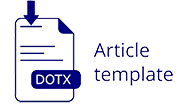BEING AN ENGLISH DEBATING COACH: A TEACHER’S ROLES AND PROFESSIONAL IDENTITY CONSTRUCTION
Abstract
English debating has taken its role to improve students’ performance in speaking and critical thinking skill, but it is through a long and uneasy process. This paper aims at exploring the lived experience of an English teacher in an Islamic boarding school who initiated the first English debating club and coached the members to be a considerable debating team in regional and national levels. The data of this narrative inquiry study were collected through several semi-structured interviews. The meaningful experiences and insights from the research data were highlighted thematically and presented as the data findings. This study found several roles of the teacher in initiating the debating club, such as establishing the club, recruiting the members, structuring the regular rehearsal, mapping the students’ strengths and weaknesses, and giving feedback and motivation. Under the limited sources of time and information, the teacher guided the students to work effectively and support them mentally. Her roles in coaching the debating club also inspired her professional identity as an English teacher. It implied that establishing running an English debating community requires a sequence of roles. In another way, it also strengthened the English teacher’s professional identity. Implications and practical suggestions are also discussed in this paper.
Keywords
Full Text:
PDFReferences
Ahn, I., Chiu, M. M., & Patrick, H. (2021). Connecting teacher and student motivation: Student-perceived teacher need-supportive practices and student need satisfaction. Contemporary Educational Psychology, 64, 101950. https://doi.org/10.1016/j.cedpsych.2021.101950
Barkhuizen, G., Benson, P., & Chik, A. (Eds.). (2014). Narrative inquiry in language teaching and learning research. Routledge, Taylor & Francis Group.
Cariñanos-Ayala, S., Arrue, M., Zarandona, J., & Labaka, A. (2021). The use of structured debate as a teaching strategy among undergraduate nursing students: A systematic review. Nurse Education Today, 98, 104766. https://doi.org/10.1016/j.nedt.2021.104766
Chaaban, Y., Al-Thani, H., & Du, X. (2021). A narrative inquiry of teacher educators’ professional agency, identity renegotiations, and emotional responses amid educational disruption. Teaching and Teacher Education, 108, 103522. https://doi.org/10.1016/j.tate.2021.103522
Froment, F., & de-Besa Gutiérrez, M. (2022). The prediction of teacher credibility on student motivation: Academic engagement and satisfaction as mediating variables. Revista de Psicodidáctica (English Ed.), 27(2), 149–157. https://doi.org/10.1016/j.psicoe.2022.05.001
Gu, M. (Michelle), & Benson, P. (2015). The formation of English teacher identities: A cross-cultural investigation. Language Teaching Research, 19(2), 187–206. https://doi.org/10.1177/1362168814541725
Han, I. (2021). Comprehension of experienced English language teachers’ professional identity and related metacognitive thinking procedures. Teachers and Teaching, 27(1–4), 223–245. https://doi.org/10.1080/13540602.2021.1939002
Hapsari, P. D., & Wirawan, F. A. W. (2018). The Significant Connection between Communicative Competence and Cognitive Ability in Speaking English of English Debating Team. Humaniora, 9(2), 149. https://doi.org/10.21512/humaniora.v9i2.4492
Haryanto, H., Budi, E. S., & As’ad, A. (2019). Assessing speech through english debate to improve speaking ability of university students. Edulingua : Jurnal Linguistik Terapan Dan Pendidikan Bahasa Inggris, 6(1), 41–50. https://doi.org/10.34001/edulingua.v6i1
Husnawadi, H., & Syamsudarni, S. (2016). The Role of English Debating Tournament in the Face of ASEAN Economic Community (AEC). DINAMIKA ILMU, 16(1), 119. https://doi.org/10.21093/di.v16i1.353
Lan, W., & Lam, R. (2020). Exploring an EFL Teacher’s Beliefs and Practices in Teaching Topical Debates in Mainland China. Iranian Journal of Language Teaching Research, 8(1), 25–44.
Lestari, F. L. (2018). Debate technique as teacher’s strategies in improving student’s higher education english speaking skill. Education of English as a Foreign Language, 1(2), 10–19. https://doi.org/10.21776/ub.Educafl.2018.001.02.02
Lin, C.-H., Zhang, Y., & Zheng, B. (2017). The roles of learning strategies and motivation in online language learning: A structural equation modeling analysis. Computers & Education, 113, 75–85. https://doi.org/10.1016/j.compedu.2017.05.014
Majidi, A. el, Janssen, D., & de Graaff, R. (2021). The effects of in-class debates on argumentation skills in second language education. System, 101, 102576. https://doi.org/10.1016/j.system.2021.102576
Meihami, H. (2021). EFL teachers’ professional identity development through potentially exploitable pedagogical activities. International Journal of Language Studies, 15(2), 47–66.
Metz, M. (2021). Ideology, identity, and pedagogy in English language arts teachers’ linguistic styling in U.S. classrooms. Linguistics and Education, 64, 100942. https://doi.org/10.1016/j.linged.2021.100942
Muliani, M., & Sumarsono, D. (2021). Intercultural Communicative Competence: L2 Learners’ Participation on Debating Class. Jo-ELT (Journal of English Language Teaching) Fakultas Pendidikan Bahasa & Seni Prodi Pendidikan Bahasa Inggris IKIP, 8(2), 198. https://doi.org/10.33394/jo-elt.v8i2.4528
Muthmainnah, N., & Misnar. (2021). Boosting speaking performance through debating: Students' perception at uds (umuslim debating society). Journal of English Education and Social Science, 2(2), 79–86.
Rohadi, R. (2020). English debate technique in senior high school in improving student’s speaking ability and applying knowledge insight. Journal of English Education Studies, 3(1), 45–52. https://doi.org/10.30653/005.202031.57
Salimi, E. A., Mirian, E. S., & Younesi, J. (2022). Anxiety level of mastery and performance avoid goal oriented EAP learners: The effect of teacher supportive motivational discourse. Learning and Motivation, 78, 101809. https://doi.org/10.1016/j.lmot.2022.101809
Savitz, R. S., Cridland-Hughes, S., & Gazioglu, M. (2021). Debate as a tool to develop disciplinary practices and student agency. Teaching and Teacher Education, 102, 103341. https://doi.org/10.1016/j.tate.2021.103341
Suharsih, S., & Supriatna, Y. (2020). Speaking Activities in English Debating Club: A Case Study at English Conversation and Debating Club of SMKN 1 Pandeglang. Journal of English Language Teaching and Cultural Studies, 3(2), 44–53. https://doi.org/10.48181/jelts.v3i2.9348
Suhendra, E. (2020). Parliamentary English Debate Within Communicative Language Teaching Context: A Personal Reflection. Edulanguage, 3(1), 93–102. https://doi.org/10.20414/edulangue.v3i1.2033
Thommen, D., Sieber, V., Grob, U., & Praetorius, A.-K. (2021). Teachers’ motivational profiles and their longitudinal associations with teaching quality. Learning and Instruction, 76, 101514. https://doi.org/10.1016/j.learninstruc.2021.101514
Turaya, A. A. (2020). A narrative analysis of an English debater’s experience in using self-talk strategy in English debate [Undergraduate Thesis, UIN Raden Intan Lampung]. http://repository.radenintan.ac.id/id/eprint/15548
Zare-ee, A., & Ghasedi, F. (2014). Professional Identity Construction Issues in Becoming an English Teacher. Procedia - Social and Behavioral Sciences, 98, 1991–1995. https://doi.org/10.1016/j.sbspro.2014.03.633
Zulfahmi. (2017). Factors that affect students’ success in English debates. English Education Journal, 8(2), 137–148.
DOI: https://doi.org/10.34001/edulingua.v9i2.3513
Article Metrics
Refbacks
- There are currently no refbacks.

Ciptaan disebarluaskan di bawah Lisensi Creative Commons Atribusi 4.0 Internasional.











